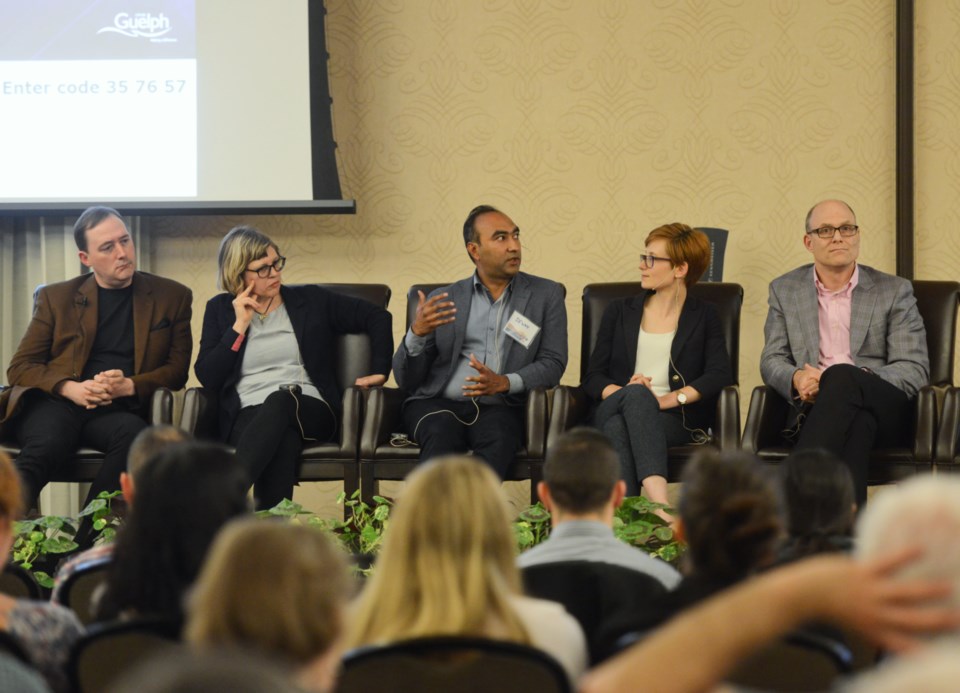Good transportation planning is about more than just planning transportation.
That was one of the key messages delivered Wednesday night at the Delta Hotel as a panel of transportation experts and advocates discussed the future of transportation in Guelph.
Roughly 200 people showed up on a rainy night for an event organized by the city but focusing on hearing some fresh ideas from outside the city.
The event was part of the engagement process as the city develops a new transportation master plan. That plan, the first since 2005, is expected to be completed in around a year.
Some of the key points came at the end of the one hour panel discussion, when the topic of what the city needs to do on a policy basis to create the groundwork for transportation's future.
"How can we create the regulatory environment for future human behaviour?" moderator Jess Hirsh asked the panel. "How do we create a transportation plan that both acknowledges how we behave, but also steers them in the direction that we desire in terms of planning...?"
University of Waterloo professor Jeff Casello said the city has to think more broadly as it plans transportation.
"I would just argue that Guelph can not do is they can not think of this as just a transportation master plan," Casello said.
"They have to think about this as a transportation plan, a land-use plan, a technology development plan a climate action plan ... because everything we've talked about tonight is all rolled up into those kinds of things."
He said the basic principles of transportation are pretty obvious: safe, low impact loads and high capacity loads, a focus on walking, cycling and creating plans that can adapt to the next technologies.
Laying the groundwork is what has to happen first.
"Principles are a transportation master plan have to consider all facets. What are your visions for the city? then how do you build transportation to to help build that along with all the other things."
Joining Casello on the panel Wednesday were: Andrew Miller, Associate Director of Mobility, Sidewalk Labs; Nancy Smith-Lea, Director, The Centre for Active Transportation; Dewan Karim, Integrated Mobility Specialist, Dillon Consulting and Jamie Stuckless, Executive Director, Share the Road.
"Leaders need to lead. Period," said Miller.
"We have to change the way we get around," he said.
Few people will walk or bike 30 km to work, but they will walk or bike within 5 km to work, groceries or another amenity, and that's why it's important to design modular neighbourhoods, was one of the points discussed and agreed upon by several of the panelists.
And, naturally, given the number of bikes in the bike rack outside the Delta Hotel, a comment form Smith-Lea about creating roads that are safer for cyclists drew a big response from the audience.
"Do something with our streets to make it safer to get on our bikes," she said.
Smith-Lea added later that walking and cycling infrastructure shouldn't be something that is thought about later, it needs to be part of the initial transportation planning discussion.
"We need to think about that from the beginning," she said.
Ride share, bike share, creating less cars and better use of them, are all part of a positive transportation future, the audience heard.
They also heard how one of the biggest challenges is that people fight change.
"There are so many ways our current transportation system isn't working, but we're clinging to it because it's all we know," Stuckless said.
"We are reluctant to change," Casello told the audience. "But ultimately it is you that has to make the changes in their behaviour, because ultimately that's who we get to a new spot."
